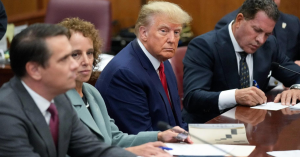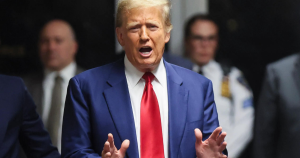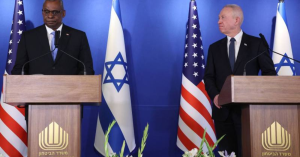The eastern Mediterranean region has recently known for being rich in gas and oil natural resources. This discovery increased economic ambitions and conflicting political interests among countries in the region and ignites conflict there. Consequently, tension stepped up over oil and gas fields, whether those discovered or underexplored, especially as estimates indicate that this region contains up to 120 trillion cubic feet of natural gas.
The importance of the eastern Mediterranean waters had been discovered when the Italian company ENI and France’s Total announced, on February 8, 2018, major gas discovery in the Calypso region off the coast of Cyprus. Three days later, Turkish gunboats intercepted an Italian drilling ship, which was on its way to a gas drilling site in the exclusive economic zone of Cyprus. The accident led to an intense exchange of diplomatic accusations.
To expand its exploration for potential natural gas resources in the Mediterranean region, turkey sent its first drillship in the east Mediterranean May 2018. The vessel implemented offshore operations in waters considered part of Cyprus’s exclusive economic zone. This action angered Greece and led its Prime Minister to appeal to the European Union to stop this illegal action of Turkey.
In response to the debate over its drilling operations, Turkey said its moves to explore and search for oil and gas do not contradict international law, and that exploration is taking place within its “continental shelf,”. The growing tensions trigger Turkey’s officials thinking about establishing a permanent naval base in Turkish Cyprus. It also reiterated that it “would not give up the rights of Turkish Cypriots in the eastern Mediterranean”.
At the beginning of 2O19, Egypt, Israel, Greece, Cyprus, Jordan, Italy, and Palestine established a forum called the East Mediterranean Gas Forum (EMGF) to transport the newly discovered gas reserves from the Eastern Mediterranean to southern Europe. The allied countries excluded Turkey from the forum, leading it to expand its drilling operations.
Accordingly, the European Union and the United States intervened and called Turkey to undo its decision of oil and gas drilling off Cyprus. The EU called upon Ankara to respect the sovereign rights of Cyprus in its exclusive economic zone (EEZ) and prevent itself from any aggressive action to which the EU would respond readily.
Amid criticism over Turkey’s maritime drilling operations, Egypt also raised concerns toward Ankara’s intention to explore in the exclusive economic zone of Cyprus and stressed the necessity of curbing tensions and abiding by the rules of international law.
Despite frequent criticism and negative reactions, Turkey did not stop its drilling operation in Cyprus, instead, it signed a Libyan- Turkish deal November 28 outlining its maritime boundaries. The memorandum established a corridor of water between the Turkish and Libyan coasts in areas where Greece considers it has maritime. it seemed that the deal came as a strong response to the establishment of (EMGF) and a signal to the allied states in the region that they cannot play the gas game without Ankara’s consent
.
As a strong regional power, Turkey had so long argued that Cyprus’s maritime zone, which is dubbed as an exclusive economic zone, full within the authority and rules of Turkey and the divided- island’s Turkish Cypriot people. Turkey also said that it is operating in waters on its own continental shelf or areas where Turkish Cypriots have rights. Moreover, it confirmed that it does not contradict the UN convention on the law of the sea as several intentional actors claim.
“Through this deal, we have taken a rightful step within the framework of international law against the stances imposed by Greece and the Greek Cypriot Administration, opposing the claims of maritime jurisdictions aiming to confine our country to the Gulf of Antalya,” Erdogan said.
Erdogan also stated during a televised interview that “other international actors cannot carry out exploration activities in the areas that Turkey marked in the [Turkish-Libyan] memorandum. Southern Cyprus, Egypt, Greece, and Israel cannot establish a natural gas transmission line without Turkey’s consent, we will not tolerate any action in this regard, and everything we do is consistent with international maritime law. “
Regarding the signed deal between Turkey and Libya, Greece turned to the US and requested the European Union to impose sanctions on Turkey over a Libyan- Turkish deal outlining the maritime borders between the two countries. it. It also ordered the expulsion of the Libyan ambassador.
In addition, Greek leadership boosted its military garrison on Crete after Turkey’s decision to send ships in search for oil and gas in its recently claimed areas under the agreement. Greece also warned Turkey that it will send its naval forces in the confrontation of the Turkish drillships.
Cyprus also stated that it will purse Turkey in the international court of justice in the Hague, and got the EU’s support accordingly.
The EU leaders stated that The Libyan- Turkish deal violates the sovereign rights of third countries and does not comply with the Law of the Sea. In this regard, Turkish Foreign Ministry spokesman Hami Aksoy said in a statement. “The European Union has no authority to decide maritime jurisdiction and the EU is not an international court, they cannot give a verdict on the legality of the Libyan agreement,”
In this regard, Talks between the Turkish president, Recep Tayyip Erdoğan, and the Greek prime minister, Kyriakos Mitsotakis did not foreshadow any positive signs to tackle the newly- emerged crisis over the abrupt Turkish-Libyan claim to an EEZ.
The standoff between Turkey and Greece is part of a long-running dispute on drilling rights in the Mediterranean, as well as a result of the Libyan UN-recognized government’s need for a strong outside actor like Turkey, which supports it to hold on to the capital.
To conclude, Greece and Turkey are at loggerheads over a host of issues since the partition of the island of Cyprus after Turkey’s 1974 invasion. Tensions are escalating because of Turkish drilling off Cyprus and the EU’s sanctions imposed on Turkey accordingly. Political analysts and commentators are not ruling out the possibility of multilateral conflict turned into a regional war among countries that have been experiencing severe political tensions long years ago due to the huge strategic reserves of oil and gas.
Author
-
The New York Center for Foreign Policy Affairs (NYCFPA) is a policy, research, and educational organization headquartered in New York State with an office in Washington D.C. NYCFPA is an independent, non-profit, non-partisan, institution devoted to conducting in-depth research and analysis on every aspect of American foreign policy and its impact around the world. The organization is funded by individual donors. The organization receives no corporate or government donations.





